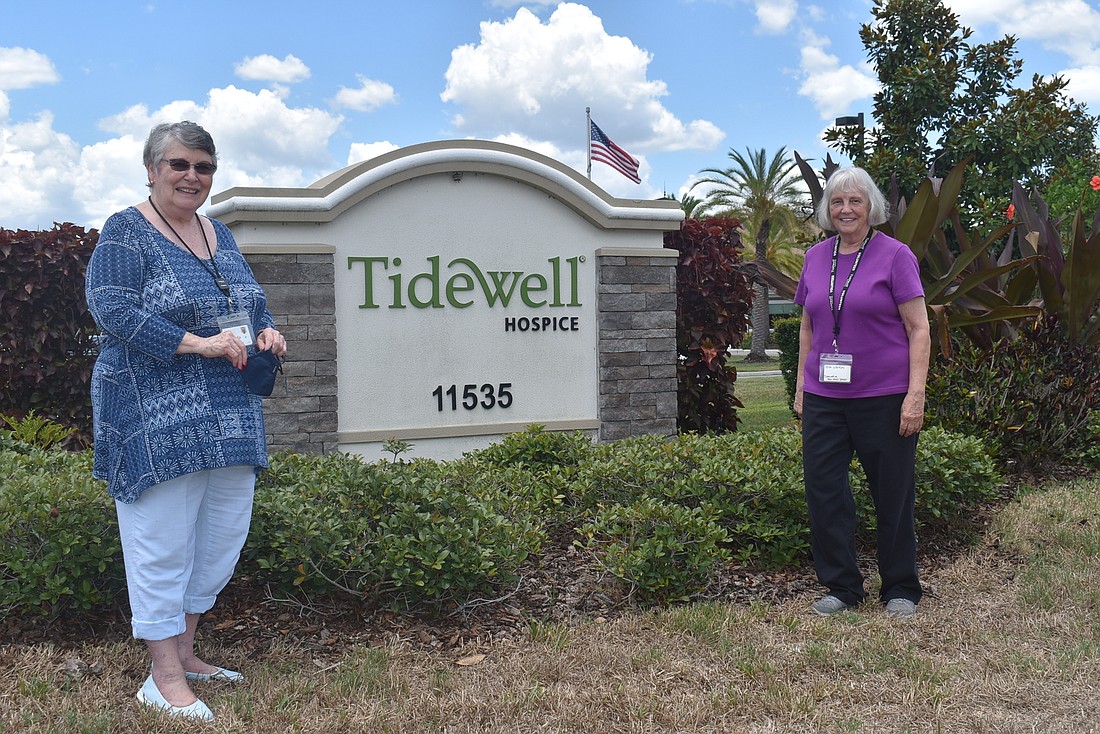- July 26, 2024
-
-
Loading

Loading

Country Club’s Lynda Anderson felt helpless during the COVID-19 pandemic.
Usually a volunteer for Tidewell Hospice, Anderson was unable to help out as usual from March through the end of 2020 because of health and safety restrictions. She knew the patients, more isolated than ever, had needs that wouldn’t stop. She knew hospice staff would be left on their own to handle everything.
“You're sitting there, you're not going anywhere, and you're reflecting back on what things you would like to be doing,” Anderson said. “I kept thinking, ‘Gosh, I wish I could get back in there. I wish I was there to do something.’”
It has been a phased return since the start of 2021, but Anderson is finally back to doing almost everything she would do before the pandemic started. She is still social distancing while visiting patients and wearing a mask in the building.
Not all of the volunteers have returned, however, and Tidewell is seeking more, according to Vice President of Specialized Services Stacy Groff, who oversees all volunteers. Before the pandemic, Groff said Tidewell had about 1,200 volunteers for its nine facilities. That number is down to 750. Lakewood Ranch-specific data was not available, because individual volunteers often help at a variety of locations.
Although volunteers weren’t allowed in the facility for almost nine months, Groff said a few of them did find ways to help. For example, when medical supplies such as masks, gowns and even face shields were in short supply, Tidewell enlisted some volunteers to make them. Volunteers made 900 gowns. Face shields were made using a couple of 3D printers. Groff said those supplies were vital until supply chains were replenished in the early summer.
As much help as those supplies provided, Groff said the lack of volunteer-patient interaction was the most difficult void to fill.
“You can put as many faces as you want on iPads, but it's not the same as having a human right there with you,” Groff said.
Anderson returned to Tidewell in January but only in the role of host, which entails greeting people, taking their temperatures and ensuring restrictions on the number of visitors allowed are followed. It wasn’t until about seven weeks ago — more than one year after she had to stop volunteering — that she finally got to work in her preferred role, patient support.
Anderson said interacting with patients is the part of the job she missed most. Since she has returned, she said patients have been thanking her for every single thing she does for them. She said she also appreciates all the families who thank her for volunteering.
River Club resident Bill Rempe missed volunteering at Tidewell, but he was also a little apprehensive when he first returned at the beginning of May, especially because he had only received the first dose of his vaccine. After volunteering a few times — and getting his second shot — he felt much more comfortable. He said Tidewell has done a great job of taking health and safety protocols into account for patients and volunteers alike.
Rempe does pinning services for patients who are veterans. Ceremonies consist of attaching pins to veterans’ clothing to honor their sacrifices and their families’ sacrifices. Rempe said the ceremonies are often emotional for the veterans, and he missed having the opportunity to provide those special moments for them.
Rempe himself served in the Army for six years, so the pinnings are especially meaningful for him as a way to show the patients their service was appreciated, one veteran to another.
“It is a material way, a personal way, for me to say thank you for your service,” Rempe said. “As you may be aware, many of our veterans and those who are serving today are not recognized for the contribution that they make and the sacrifice that they make to keep our country free. This is a way for me to reach those veterans who have served.”